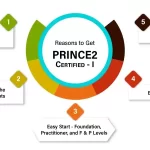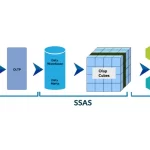ChatGPT and Google Search are two distinct tools with different purposes and mechanisms, though they both help users find information or answers to their questions. Here’s a breakdown of what ChatGPT is and how it compares to Google Search:
What is ChatGPT?
ChatGPT is an advanced conversational artificial intelligence (AI) system developed by OpenAI. It is based on the Generative Pre-trained Transformer (GPT) architecture, specifically designed for natural language processing (NLP) and text generation. ChatGPT is designed to interact with users in a conversational manner, answering questions, generating text, and providing explanations.
What is Google Search?
Google Search is a search engine developed by Google that indexes and retrieves information from the internet. It allows users to search for web pages, images, videos, news, and other online content. Google Search uses complex algorithms to rank and present relevant results based on user queries.
Key Differences
Here are some key differences between ChatGPT and Google Search:
Purpose:
- ChatGPT: Focuses on conversational interaction, generating human-like responses, and providing detailed explanations. It is designed to simulate human conversation and engage users in dialogue.
- Google Search: A search engine designed to find and present information from the internet. It serves as a gateway to a vast array of online resources, including websites, articles, and databases.
Data Source:
- ChatGPT: Trained on a large dataset of text, but it doesn’t have direct access to the internet or live data. It relies on the information it learned during training and doesn’t browse the web.
- Google Search: Indexes and retrieves information from the entire internet. It constantly updates its index to include new content and provide the latest information.
Interaction Style:
- ChatGPT: Offers a conversational interface where users can ask questions, request information, or engage in discussions. It generates text in response to user prompts and can adapt to different conversational contexts.
- Google Search: Primarily provides a list of links to relevant web pages or resources. Users need to explore the links to find detailed information.
Capabilities:
- ChatGPT: Can generate detailed responses, offer explanations, brainstorm ideas, or even create content. It can engage in long-form text generation and emulate human-like dialogue.
- Google Search: Primarily delivers links to external resources. It excels at quickly providing a wide range of search results, allowing users to find specific information from various sources.
Limitations:
- ChatGPT: May provide incorrect or outdated information since it doesn’t have real-time access to the web. It is not a reliable source for up-to-date news or current events.
- Google Search: Requires users to navigate through search results to find the information they need. It doesn’t offer conversational interaction and might not provide detailed explanations directly.
When to Use Each
- Use ChatGPT when you want conversational interaction, detailed explanations, brainstorming, or assistance with writing and problem-solving. It’s suitable for discussions, creative ideas, and exploring topics in depth.
- Use Google Search when you need specific information, current events, news, research, or access to a wide range of online resources. It’s ideal for finding multiple sources of information quickly.
- Both tools have unique strengths, and choosing between them depends on your needs and the type of information or interaction you seek.

















































